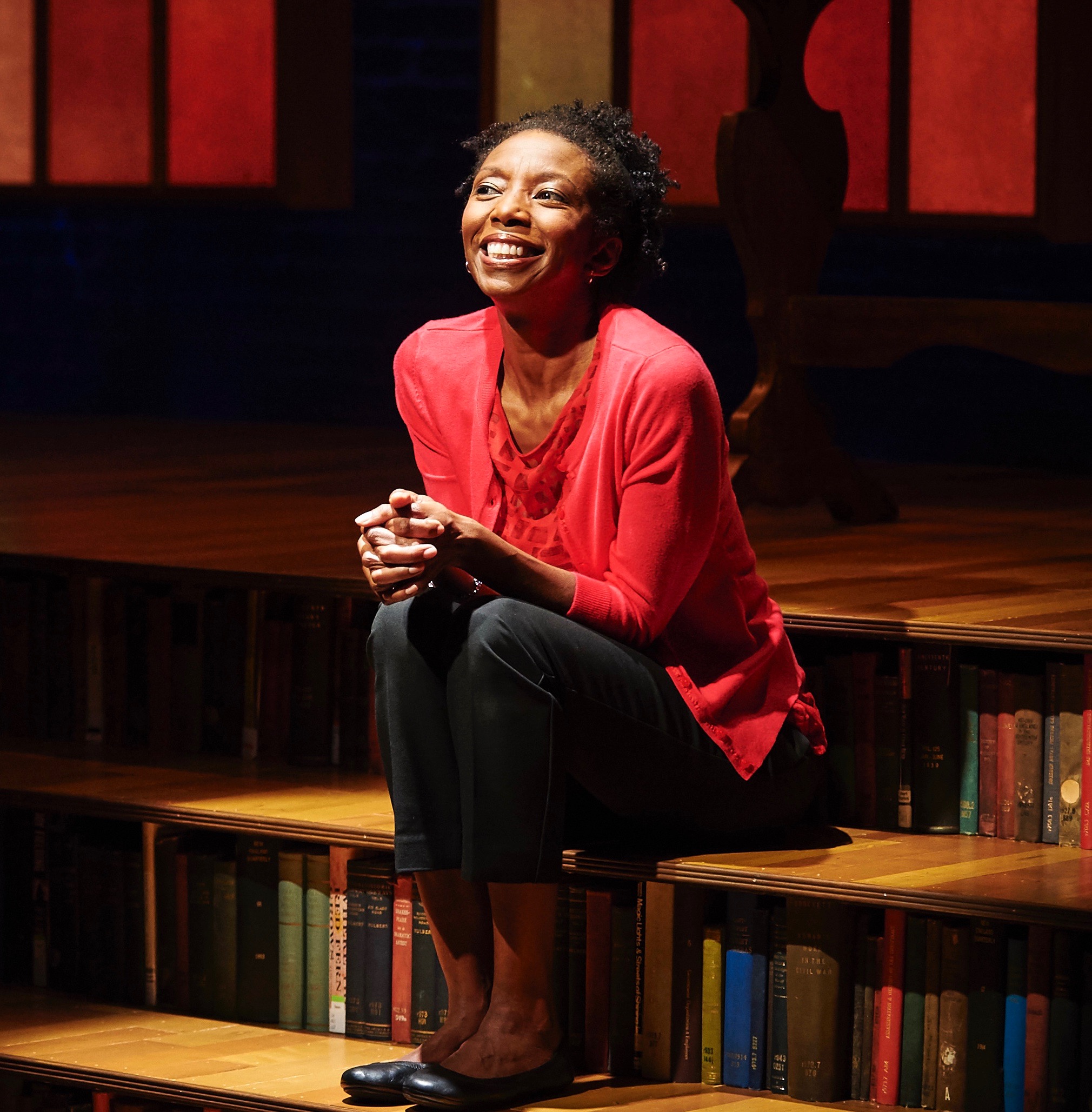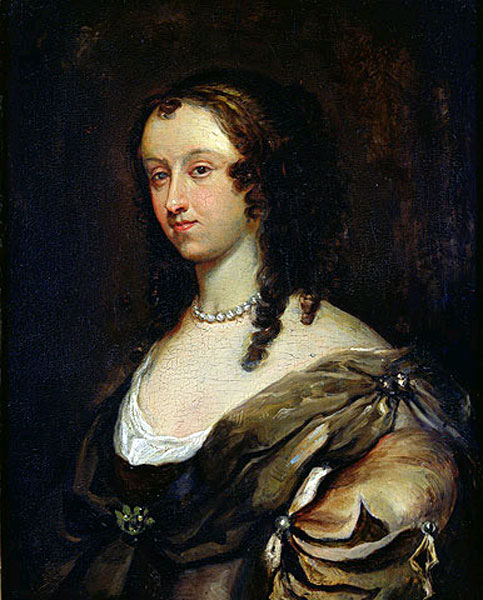November Theater Guide: From Shylock to ‘Salome,’ a Cool Month for Hot Classics

Femme fatale: soprano Patricia Racette is a steaming Salome in Richard Strauss’s opera, one of many classics on Pittsburgh stages in this year’s 11th month.
It is not true, as the old joke goes, that you want to be in Pittsburgh when the world ends because everything happens here 20 years later. We are not behind the times, and don’t make me get defensive about it or I will start rattling off a list of Pittsburgh’s famous firsts. The city in which the pull-tab top for beer cans was invented is clearly a city at the cutting edge of science and culture.
We even bring the past to life dramatically. Our theater companies are doing it in November with a schedule that’s heavy on the classics. Going in chronological sequence from the most way-back shows to the more recent, the highlights include Shakespeare’s The Merchant of Venice, Aphra Behn’s Restoriation-era comedy The Rover, Ivan Turgenev’s mid-1800s comedy A Month in the Country—this one’s being staged in a speedier modern adaptation called Three Days in the Country—and the Strauss opera Salome, drawn from Oscar Wilde’s wicked play.
Twentieth-century classics include the stage version of To Kill a Mockingbird, the Sixties musical Hair, and (strange but true) an opera based on Oliver Sacks’ true story of a medical patient with a strange brain disorder, The Man Who Mistook His Wife for a Hat.
Plus, there is new stuff! Stephen Adly Guirgis’ Between Riverside and Crazy won the 2015 Pulitzer Prize for Drama. Yankee Tavern is an under-the-radar hit about conspiracy theories. And Sara Lyons’ I’m Very Into You is adapted from email correspondence between a punk-postmodern-feminist writer and an Australian media theorist who had a wild love affair. Try putting that in your beer can and smoking it.
Shows are previewed below in order of their run dates.
YANKEE TAVERN by Steven Dietz. Now through Nov. 5, Throughline Theatre.
Whether you believe conspiracy theories or mock them, you may want to catch Throughline Theatre’s production of Yankee Tavern. The seriocomic play is set in a fictional bar near Manhattan’s Ground Zero. It’s a bar where the power went out on the morning of 9/11, stopping the jukebox in the middle of Don McLean’s “American Pie”—and where the patrons, long after the tragic event, include a hardcore conspiracy theorist who does not believe any conspiracy theories about John F. Kennedy’s assassination. He says there was a conspiracy that invented those theories in order to make people mistrust the government. Yankee Tavern contains many bits of mind-bending silliness, which have drawn big laughs when performed in other cities. But in fact, the facts are not always what they seem to be, and the play eventually ventures into the far more mind-bending territory where reality and fantasy become hard to tell apart. At the Grey Box Theatre, 3595 Butler St., Lawrenceville.

Sharon Washington has a library’s worth of stories to share.
FEEDING THE DRAGON (one-person play) by Sharon Washington. Now through Nov. 20, City Theatre.
New York-based actress Sharon Washington is at City Theatre premiering a one-woman show about her childhood. Washington’s father worked as a live-in custodian for the New York Public Library system, so she grew up in apartments built into various old libraries, and from that odd circumstance flow many stories. She was able to roam the stacks after hours, reading from books that transported her imagination to faraway places while she sat alone under spots of light in the vast and vacant corridors. A custodian was needed around the clock to feed the huge coal furnaces that both heated and generated power for the old buildings—hence the title of Washington’s show, Feeding the Dragon—and when very young, she idolized her dad. He was the man who went down into the bowels and shoveled the fuel to keep the library alive. That changed in later years as dad’s drinking problem became apparent to her: there were times when he was out of commission, and she’d have to help her mother shovel the coal to keep the breadwinner’s job alive. Feeding the Dragon is thus a multifaceted tale of youth and learning. 1300 Bingham Street, South Side.

Shylock (James FitzGerald) pleads his case in a land where Jews don’t get a pound of flesh; they just get pounded.
THE MERCHANT OF VENICE by William Shakespeare. Nov. 3-19, PICT Classic Theatre.
PICT Classic Theatre is staging a controversial classic with Shakespeare’s The Merchant of Venice. Written at a time when anti-Semitism was the norm, the play revolves around the Jewish moneylender Shylock, who notoriously demanded a pound of flesh as payoff for a defaulted loan.
For centuries, Shylock was played as a greedy, conniving stereotype, but Shakespeare didn’t write the part that way. He gave the man lines and scenes that bring out the complexity of his character, and show how he was often tormented by a society aligned against him. PICT has James FitzGerald as Shylock, in a production that re-sets The Merchant of Venice in a perilous modern era: the 1930s. Union Project, 801 N. Negley Ave., Highland Park.
TO KILL A MOCKINGBIRD by Christopher Sergel, from Harper Lee’s novel. Nov. 4-13, Prime Stage Theatre.
Prime Stage Theatre presents plays that (a) explore significant social themes, (b) are accessible to middle-school and high-school students, and (c) usually appeal to adult audiences as well. Christopher Sergel’s To Kill a Mockingbird—adapted from the Harper Lee novel that nearly everybody in America has read, except for the cheaters who used the SparkNotes to write their book reports—meets all three criteria. We will not provide story details here. We wish to shame the cheaters into reading the book and seeing the Prime Stage production. But to give just a few tidbits: To Kill a Mockingbird is about a young girl in the pre-integration South and her father, a lawyer, who defends a black man accused very dubiously of a crime. And there is a reason the story remains universally popular. It’s good. At the New Hazlett Theater, 6 Allegheny Square East, North Side.

No full-color photo here: ‘To Kill a Mockingbird’ takes us back to the time when young Scout (Grace Vensel) and papa Atticus (Brian Ceponis) had to face matters of black and white.
SALOME (opera) by Richard Strauss, from Oscar Wilde’s play. Nov. 5-13, Pittsburgh Opera.
If you want a sizzling opera they do not come much sizzlier than Richard Strauss’ Salome. Adapted from a play of the same title—which was written by Oscar Wilde, but could not be performed in England at the time, due to its gruesomely erotic irreverence—the opera carries a “brief nudity” warning for audience members who may be shocked to find the famous “Dance of the Seven Veils” performed to its utmost. Salome is a re-interpretation of the New Testament story in which Herod’s stepdaughter agrees to dance for the lecherous ruler if he will give her John the Baptist’s head on a platter. Here, Salome is portrayed as being passionately attracted to the ascetic and soon-to-be-decapitated prophet. One can imagine the wicked twists that flow from so bizarre an unrequited love, but in case one cannot, the opera brings them out dramatically and musically. Pittsburgh Opera’s Salome features soprano Patricia Racette in the title role and baritone Nmon Ford as the unfortunate object of her desire. Benedum Center, 237 7th Ave., Cultural District.
I’M VERY INTO YOU by Sara Lyons, from emails by Kathy Acker and McKenzie Wark. Nov. 9-11, Carnegie Mellon School of Drama.
Who was Kathy Acker? Genre identifiers don’t help much, since the late writer (she died in 1997 at age 50) has so many: Wikipedia summarizes her as an “experimental novelist, punk poet, playwright, essayist, postmodernist and sex-positive feminist” whose influences included “French critical theory, philosophy, and pornography.” But wait, there’s more. In 1995, Acker—author of notable works such as Rip-Off Red, Girl Detective and the Burning Bombing of America—had a brief, torrid affair with the Australian media theorist McKenzie (Ken) Wark, author of A Hacker Manifesto. Separated afterward by distance, Acker and Wark kept the sexual and intellectual fervor alive for a while in an email correspondence. Later their emails were put together in a book titled I’m Very Into You. And Sara Lyons, a graduate student in directing at Carnegie Mellon’s School of Drama, has written a stage play adapted from the book. Kathy Acker and her Aussie sidekick ride again in Lyons’ I’m Very Into You. Purnell Center on the Carnegie Mellon campus, 5000 Forbes Ave., Oakland.
https://www.youtube.com/watch?v=C4740nZKERw
HAIR (musical) by Gerome Ragni, James Rado, and Galt McDermot. Nov. 10-20, Pitt Department of Theatre Arts.
Across I-376 from the borough of Carnegie lies a little-known corner of Pittsburgh known as East Carnegie. Years ago it was (and largely still is) a blue-collar district, not the kind that anyone back in the day would’ve called a hippie haven. Yet East Carnegie was the birthplace and home neighborhood of one of the defining hipsters of his generation: Gerome Ragni, who went on to co-write the 1967 rock musical Hair. Ragni, now deceased, teamed up in New York with fellow actor/singer James Rado and composer Galt McDermot to create the musical. And Hair turned out to be a groundbreaking hit. Some of its songs became pop-culture anthems, including “Aquarius” and “Let the Sunshine In” (performed above by the Broadway revival cast on ABC-TV). The show’s story line, centered around a group of rebellious young people, mixed raucous merrymaking with serious societal issues. Its exuberant energy wowed audiences worldwide, while its transgressive features raised the hackles of censors and conservative citizens’ groups worldwide. Pitt’s Department of Theatre Arts presents a Pittsburgh revival of Hair in the Charity Randall Theatre in the Stephen Foster Memorial. 4301 Forbes Ave., Oakland.
THE SEA by Edward Bond. Nov. 11 – Dec. 4, Point Park Conservatory Theatre.
Now for something completely different. Edward Bond’s play The Sea is set in a quaint English seaside town in 1907—a town where a man has just been drowned, alas, during a storm—but no, this is not another dreary working-class drama about commoners bearing up nobly in the face of grim hardships. These people are flat-out wacky. Indeed, as anyone who has frequented small towns will attest, the wackiness in them can exceed that found in our tumultuous urban centers. In The Sea, reactions to the drowning include a belief that space aliens have invaded. Bond, one of England’s legendary living playwrights, is one of its most idiosyncratic. The Sea is a satirical comedy and Point Park University’s Conservatory Theatre is performing it in our town. Studio Theatre at Pittsburgh Playhouse, 222 Craft Ave., Oakland.
BETWEEN RIVERSIDE AND CRAZY by Stephen Adly Guirgis. Nov. 10 – Dec. 11, Pittsburgh Public Theater.
Stephen Adly Guirgis has won a rep for writing plays that leave you laughing, shuddering, and amazed. His works include The Last Days of Judas Iscariot, an epic fantasy set in Purgatory, where Judas is on trial, and the dark 12-step comedy The Motherfucker with the Hat. Pittsburgh’s smaller theater companies have staged those two and others, and now The Public, the city’s largest company, is doing Guirgis’ winner of the 2015 Pulitzer Prize for Drama, Between Riverside and Crazy. Your friendly EC theater writer has not seen this one, but it is said to display Guirgis’ signature touches: surreal humor and tense personal drama springing from extreme characters placed in bizarre situations. The central character is a black ex-cop who retired from the NYPD after an incident in which he was shot several times by a white fellow officer. He’s haggling over a lawsuit for damages while dodging eviction from his Riverside Drive apartment, which is peopled by an odd crew ranging from the ex-cop’s son (an ex-con not yet cured of his criminal ways) to a spiritual/sexual healer called Church Lady. Therefore the action unfolds Between Riverside and Crazy. At the O’Reilly Theater, 621 Penn Ave., Cultural District.

Aphra Behn called ’em as she saw ’em … and in her day, she saw a lot.
THE ROVER by Aphra Behn. Nov. 17-19 and Nov. 29 – Dec. 3, Carnegie Mellon School of Drama.
Once almost forgotten in the mists of time, Aphra Behn has been resurrected recently as a cultural hero. Make that heroine: she wasn’t the first female playwright but during the 1600s she became one of the first women to earn a living from the art. An intriguing character herself, Behn turned to writing after undercover work as a spy for King Charles II of England. Her edgy comedies were immensely popular in the Restoration period, the years after Cromwell’s dour Puritan rule, when a spirit of liberation swept through English society. Later critics, however, deemed her writing to be the scandalous work of a too-loose woman’s mind and consigned her to history’s proverbial dustbin.
Today, amid a new spirit of liberation, Behn is back. A modern play about her, Liz Duffy Adams’ Or, was staged by off the WALL Productions two years ago. This year Carnegie Mellon’s School of Drama is performing a Behn original, The Rover. Catch it if you want to catch that Restoration feeling. At Purnell Center on the Carnegie Mellon campus, 5000 Forbes Ave., Oakland.
THREE DAYS IN THE COUNTRY by Patrick Marber (adapted from Ivan Turgenev). Nov. 18 – Dec. 4, Kinetic Theater.
Some of the hardest-core literature fans are the people who get deeply into reading “the Russians,” i.e. the great Russian novelists of the 1800s and early 1900s. If you are such a fan you know Ivan Turgenev as the author of the stunning 1862 novel Fathers and Sons. Turgenev’s plays are much less known, though one has endured: his comedy A Month in the Country. It’s the story of a woman who is bored with her marriage and struggles to keep a passionate suitor at arm’s length while scheming to snare a handsome younger man. A Month in the Country was banned in Russia for years as being entirely too naughty. We don’t sweat that stuff any more, and Pittsburgh’s Kinetic Theatre is presenting a modern adaptation by the English playwright Patrick Marber. This version is called Three Days in the Country—a faster title for faster times—but do not fear that Marber has turned Turgenev’s piece into a riff on Internet-based speed dating; the 1800s setting and flavor are preserved. At the New Hazlett Theater, 6 Allegheny Square East, North Side.

Cast members of ‘A Christmas Story: The Musical’ demonstrate their strategic intent to put the ‘Merry’ in ‘Merry Christmas.’
A CHRISTMAS STORY: THE MUSICAL by Joseph Robinette, Benj Pasek, and Justin Paul. Nov. 22-27, touring company at the Benedum Center.
We’re all familiar with what the Thanksgiving holiday means. Family gatherings, food, football … and the full-bore, comin’-at-you kickoff of the Christmas season. Those who desire a more pleasant experience than Black Friday shopping may wish to take the family to the touring production of A Christmas Story: The Musical. Based on the 1983 movie, which was based on stories by storyteller/writer Jean Shepherd—hey, after thousands of years of recorded human history, it’s getting hard to come up with new plots, so no complaints about adaptations, please!—based on the movie A Christmas Story, this musical relates the humorous and heartwarming tale of a little boy in 1940s Indiana who wants a BB gun for Christmas. Indiana in the 1940s? You’d have to do a lot of shopping to find anything that’s more vintage Americana. Benedum Center, 237 7th Ave., Cultural District.
THE MAN WHO MISTOOK HIS WIFE FOR A HAT (chamber opera) by Michael Nyman et al, from Oliver Sacks’ story. Nov. 25 – Dec. 11, Quantum Theatre.
Before The Man Who Mistook His Wife for a Hat was made into an opera, it was the title case in a book by the neurologist Oliver Sacks. In his 1985 collection of “clinical tales,” Sacks wrote of patients with various brain disorders that had affected them in unusual ways. The man of the title suffered from visual agnosia: he could see quite well but was losing the ability to recognize what he saw. He’d confuse objects with people—trying to shake hands with a grandfather clock, thinking a fire hydrant was a small child—and one day, wanting his hat, he grabbed his wife’s head and tried to put it on. The man could still identify things and people by sound, in fact with great acuity, as he was a perfect-pitch classical singer. So not surprisingly, composer Michael Nyman and librettists Christopher Rawlence and Michael Morris wrote a chamber opera based on the story. It’s said to be moving and thought-provoking. Quantum Theatre, which blew away audiences last year with an operatic remake of Shakespeare’s The Winter’s Tale, is staging The Man Who Mistook His Wife for a Hat. 200 N. Highland Ave., East Liberty.
THE TOXIC AVENGER (musical) by Joe DiPietro and David Bryan. Through Dec. 18, Pittsburgh CLO Cabaret.
For those who enjoy mutations, a cult horror-comedy movie from 1984 has been turned into a stage musical. The Toxic Avenger tells the story of a pollution-fighting nerd named Melvin Ferd the Third who is transformed to a slimy superhero after being soaked in toxic waste. Using his newfound superpowers, mutant Melvin wins the love of a blind librarian, and together they wage war on the nefarious characters responsible for corrupting the environment. The musical, which premiered off-Broadway in 2009, has a rock score with songs like “All Men Are Freaks” and “Who Will Save New Jersey?” Pittsburgh CLO is performing The Toxic Avenger in the friendly confines of the Cabaret at Theater Square.
Photo credits: Salome, by David Buchman Photography. Sharon Washington, by Kristi Jan Hoover. The Merchant of Venice, courtesy of PICT Classic Theatre. To Kill a Mockingbird, by Laura Slovensko. Aphra Behn, uncredited photo of a portrait by Sir Peter Lely, circa 1670, courtesy of the Yale Center for British Art. A Christmas Story: The Musical, by Gary Emord Netzley.
Mike Vargo, a Pittsburgh-based freelance writer and editor, covers theater for Entertainment Central.
Share on Social Media
Follow Entertainment Central
Latest Stories
Sign up for the EC Newsletter







